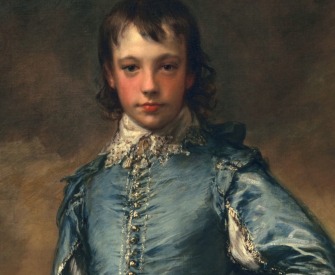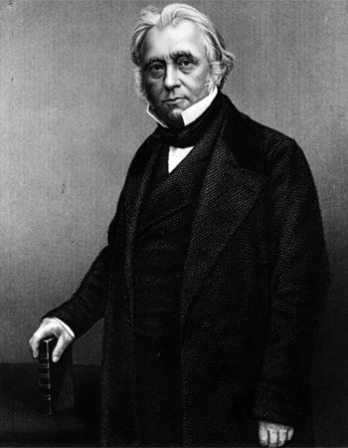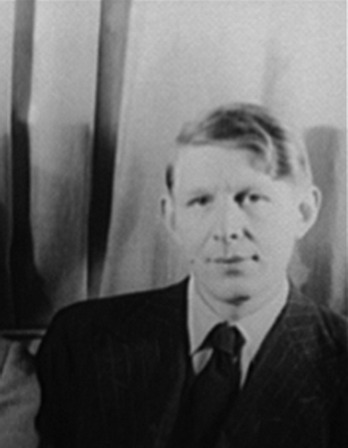Venus lay down on the grasses
and on her Adonis, and using his breast as a pillow,
she told this story, mixing her words with sweet kisses:
“Perhaps you’ll have heard of a maiden able to vanquish
the swiftest of men in a foot race; this wasn’t a fiction,
for she overcame all contestants; nor could you say whether
she deserved praise more for her speed or her beauty.
She asked some god about husbands. ‘A husband,’ he answered,
‘is not for you, Atalanta: flee from a husband!
But you will not flee—and losing yourself, will live on!’
“Frightened by his grim prediction, she went to the forest
and lived there unmarried, escaping the large and persistent
throng of her suitors by setting out cruel conditions;
‘You cannot have me,’ she said, ‘unless you outrun me;
come race against me! A bride and a bed for the winner,
death to the losers. Those are the rules of the contest.’
“Cruel? Indeed—but such was this young maiden’s beauty
that a foolhardy throng of admirers took up the wager.
As a spectator, Hippomenes sat in the grandstand,
asking why anyone ever would risk such a danger,
just for a bride, and disparaging their headstrong passion.
However, as soon as he caught a glimpse of her beauty,
like mine or like yours would be if you were a woman,”
said Venus, “her face and her body, both bared for the contest,
he threw up both hands and cried out, ‘I beg your pardons,
who only a moment ago disparaged your efforts,
but truly I had no idea of the trophy you strive for!’
“Praises ignited the fires of passion and made him
hope that no young man proved to be faster than she was
and fear that one would be. Jealous, he asked himself why he
was leaving the outcome of this competition unventured:
‘God helps those who improve their condition by daring,’
he said, addressing himself as the maiden flew by him.
Though she seemed no less swift than a Scythian arrow,
nevertheless, he more greatly admired her beauty,
and the grace of her running made her seem even more lovely;
the breezes blew back the wings attached to her ankles
while her loose hair streamed over her ivory shoulders
and her brightly edged knee-straps fluttered lightly; a russet
glow fanned out evenly over her pale, girlish body,
as when a purple awning covers a white-marble surface,
staining its artless candor with counterfeit shadow.
“She crossed the finish line while he was taking it in, and
Atalanta, victorious, was given a crown and the glory;
the groaning losers were taken off—end of their story.
But the youth, undeterred by what had become of the vanquished,
stood on the track and fixed his gaze on the maiden:
‘Why seek such an easy victory over these sluggards?
Contend with me,’ he said, ‘and if Fortune makes me the winner,
you will at least have been beaten by one not unworthy:
I am the son of Megareus, grandson of Neptune,
my great-grandfather; my valor is no less impressive
than is my descent; if you should happen to triumph,
you would be famous for having beaten Hippomenes.’
“And as he spoke, Atalanta’s countenance softened:
she wondered whether she wished to win or to be won,
and asked herself which god, jealous of her suitor’s beauty,
sought to destroy him by forcing him into this marriage:
‘If I were judging, I wouldn’t think I was worth it!
Nor am I moved by his beauty,’ she said, ‘though I could be,
but I am moved by his youth: his boyishness stirs me—
but what of his valor? His mind so utterly fearless?
What of his watery origins? His relation to Neptune?
What of the fact that he loves me and wishes to wed me,
and is willing to die if bitter Fortune denies him?
“‘Oh, flee from a bed that still reeks with the gore of past victims,
while you are able to, stranger; marrying me is
certain destruction! No one would wish to reject you,
and you may be chosen by a much wiser young lady!
“‘But why should I care for you—after so many have perished?
Now he will learn! Let him die then, since the great slaughter
of suitors has taught him nothing! He must be weary of living!
So—must he die then, because he wishes to wed me,
and is willing to pay the ultimate price for his passion?
He shouldn’t have to! And even though it won’t be my fault,
my victory surely will turn the people against me!
“‘If only you would just give it up, or if only,
since you’re obsessed with it, you were a little bit faster!
How very girlish is the boy’s facial expression!
O poor Hippomenes! I wish you never had seen me!
You’re worthy of life, and if only my life had been better,
or if the harsh Fates had not prevented my marriage,
you would have been the one I’d have chosen to marry!’
“She spoke, and, moved by desire that struck without warning,
loved without knowing what she was doing or feeling.
Her father and people were clamoring down at the racecourse,
when Neptune’s descendant Hippomenes anxiously begged me:
‘Cytherian Venus, I pray you preside at my venture,
aiding the fires that you yourself have ignited.’
A well-meaning breeze brought me this prayer, so appealing
that, I confess, it aroused me and stirred me to action,
though I had scant time enough to bring off his rescue.
“There is a field upon Cyprus, known as Tamasus,
famed for its wealth; in olden days it was given
to me and provides an endowment now for my temples;
and there in this field is a tree; its leaves and its branches
glisten and shimmer, reflecting the gold they are made of,
now, as it happened, I’d just got back from a visit,
carrying three golden apples that I had selected:
and showing myself there to Hippomenes only,
approached him and showed him how to use them to advantage.
“Both of them crouched for the start; when horns gave the signal,
they took off together, their feet barely brushing the surface;
you would have thought they were able to keep their toes dry
while skimming over the waves, and could touch on the ripened
heads of wheat in the field without bending them under.
“Cries of support and encouragement cheered on the young man;
‘Now is the time,’ they screamed, ‘go for it, go for it, hurry,
Hippomenes, give it everything that you’ve got now!
Don’t hold back! Victory!’ And I am uncertain whether
these words were more pleasing to him or to his Atalanta,
for often, when she could have very easily passed him,
she lingered beside, her gaze full of desperate longing,
until she reluctantly sped ahead of his features.
“And now Hippomenes, dry-mouthed, was breathlessly gasping,
the finish line far in the distance; he threw out an apple,
and the sight of that radiant fruit astounded the maiden,
who turned from her course and retrieved the glittering missile;
Hippomenes passed her: the crowd roared its approval.
“A burst of speed now and Atalanta makes up for lost time:
once more overtaking the lad, she puts him behind her!
A second apple: again she falls back, but recovers,
now she’s beside him, now passing him, only the finish
remains: ‘Now, O goddess,’ he cries, ‘my inspiration, be with me!’
“With all the strength of his youth he flings the last apple
to the far side of the field: this will really delay her!
The maiden looked doubtful about its retrieval: I forced her
to get it and add on its weight to the burden she carried:
time lost and weight gained were equal obstructions: the maiden
(lest my account should prove longer than even the race was)
took second place: the trophy bride left with the victor.”
©2010 by W. W. Norton & Company, Inc. Used with permission of W. W. Norton & Company.
From Metamorphoses. Born in 43 bc, Ovid held judicial posts before dedicating himself to writing poetry. He completed Metamorphoses almost three decades after the publication of Virgil’s Aeneid. Banished to the Black Sea by Augustus in 8, Ovid attributed his disgrace to “a poem and a mistake”—the former his Art of Love, the latter presumably his knowledge of the debauchery of the emperor’s granddaughter.
Back to Issue





